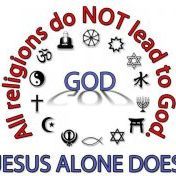-
Recently Browsing 0 members
- No registered users viewing this page.
-
Similar Content
-
Are terms & phrases "fortresses" & "speculations and every lofty thing" in 2 Corinthians 10:3-6 broad enough to include human thoughts of sexual lust, infatuation, financial & material greed, distractions, idolization?
By bartmac123,
- 1 reply
- 258 views
-
Are terms & phrases "fortresses" & "speculations and every lofty thing" in 2 Corinthians 10:3-6 broad enough to include human thoughts of sexual lust, infatuation, financial & material greed, distractions, idolization?
By bartmac123,
- idolatry
- infatuation
- (and 1 more)
- 0 replies
- 159 views
-
- 7 replies
- 907 views
-
- 1 reply
- 736 views
-





Recommended Posts